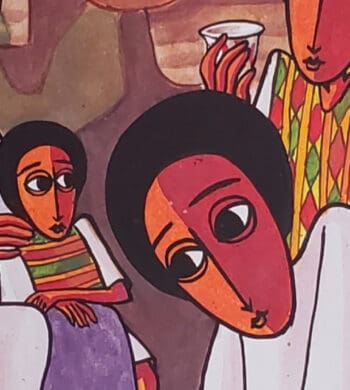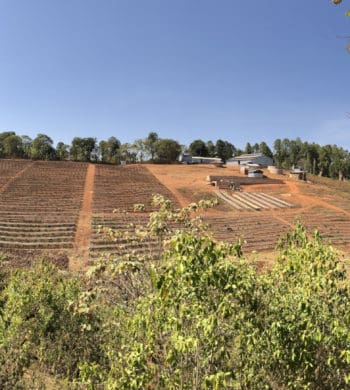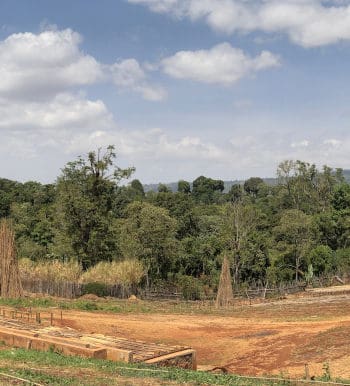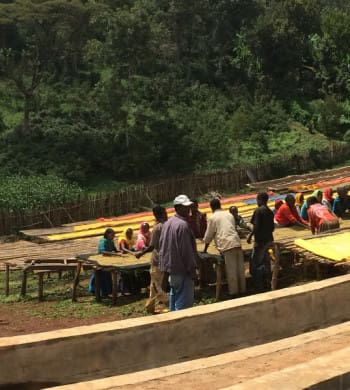Ethiopia’s Amhara National Region State is one of the country’s most popular tourist destinations but is only recently developing a reputation as a significant producer of specialty coffee. Located north of Ethiopia’s capital of Addis Ababa, Amhara Region is entirely unique in its production system from the more commonly known coffee growing regions in the West, South and East. Lake Tana is not only the largest lake in Ethiopia, it also happens to be the source of the Blue Nile river which runs over 900 miles from its source to Khartoum, Sudan. In a country known for its incredible internal coffee consumption (around 60% of coffee produced is consumed in-country,) residents of the northern part (including Amhara Region) consume more coffee than any other.
Situated on Lake Tana, the Zege Peninsula encompasses around 20 square kilometers (~5,000 acres) of pristine forestland. In 2007 a highly motivated farmer from Zege started promoting coffee from the peninsula and later mobilized the community to form the Zege Farmers Coffee Producers and Marketing Coop.
The Zege Peninsula is also home to the Ura Kidane Mehret monastery. Founded in the 14th century, it is one of the oldest and most famous Orthodox monasteries in Ethiopia. Legend says that four hundred years ago a monk from Zege by the name of BetreMariam blessed the land to live off of three plants only: Coffee, Limes and “Hops.” Staying true to this divine instruction the farmers of Zege have maintained the verdant forests and are famous (locally) for their flavorful limes and “hops” used to brew a local beer called “Tala.”
In 2014 the Hanns R. Neumann Stiftung (HRNS) initiated the CAFE Project (Coffee Alliance For Ethiopia) in the Amhara Region, in partnership with other private and public donors. That year HRNS opened office in Bahir Dar and set its focus on coffee farming communities in selected coffee growing areas, including the Zege Peninsula. HRNS’ motivation for working in Amhara may be best summarized by a core value featured on the organization’s home page: “Because Coffee Farmers Deserve Prosperity.” The same page identifies several sustainability elements that are often neglected by other NGO’s. In addition to improving quality and productivity, HRNS’ CAFE Project has components dedicated to balancing gender equity in the farming household, retaining youth in farming and mitigating the effects of climate change on farming communities.
For smallholder coffee farmers, business development and marketing are other oft-overlooked areas that are critical to commercial success. One of the CAFE Project’s first initiatives was to help Amhara farmers organize into legally registered cooperatives. Zege Coop was the first to restructure under the Amhara Coffee Farmer’s Cooperative Union (ACFCU,) newly formed and legally registered in 2015. In 2018 ACFCU took another leap forward by appointing Mare Getnet as general manager, the first woman to lead a coffee cooperative union in Ethiopia’s history.
Thanks to the farmers’ hard work and HRNS’ years of support, Zege’s fame is spreading internationally as improvements in farm husbandry and processing have catapulted their coffee into the upper echelon of specialty quality. At this time all coffee produced by Zege is Natural process, carefully sun-dried on raised bed over several weeks. We’ve never seen a profile like this from Ethiopia, with blackberry, raisin, date and plum dominating in a fashion more commonly found in Kenya and Tanzania. The focused acidity of syrupy Amarena cherries has come up more than once at our cupping table.
It’s not often that we’re able to feature a new “origin within an origin” so we hope that you enjoy these coffees from Amhara Region as much as we do!



